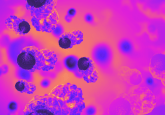Highlights from the 19th WRIB conference 2025

The 19th WRIB conference, 7−11 April 2025
The annual Workshops on Recent Issues in Bioanalysis (WRIB) conference was held in New Orleans (LA, USA), with three workshop days covering:
- Day 1: Ligand binding, cell-based and molecular assays
- Day 2: US FDA and rest of the world regulators’ inputs on immunogenicity, gene/cell therapy, regulated bioanalysis, bioanalytical method validation and biomarkers
- Day 3: Mass spectrometry, chromatography and sample preparation
Browse our Editors’ talk highlights from the event below.
Editor’s highlights from the session
Stability of biomarkers: considerations for assessment and data analysis
Speaker: Jad Zoghbi, Scientific Director, Translational Sciences, Biogen (MA, USA)
Assessing biomarker stability is essential to ensure reliable, reproducible results that support sound decision-making. Unstable biomarkers can lead to data misinterpretation, compromised clinical outcomes, and regulatory challenges. Including stability studies as part of analytical validation helps confirm biomarker performance over time and under varying storage conditions. Incorporating a thoughtful study design is critical to generating meaningful data as well as analyzing trends from clinical study data, which can be supportive in offering valuable insights into biomarker stability to support scientifically robust decisions, depending on the context of use.
Key takeaway: A thorough assessment of biomarker stability, through well-designed stability studies and clinical data trends, is key to enabling reliable, scientifically sound decision-making.
A cell-based in vitro method to assess innate immune responses of host cell proteins in recombinant peptide therapeutics
Speaker: Michele Rasamoelisolo, Senior Director, Teva (Tel Aviv-Yafo, Israel)
Summary: Depending on the amino acid length, a recombinant form of the peptide is more cost-effective at scale than its synthetic counterpart. However, the presence of process-related impurities such as residual Host Cell Proteins (HCPs) may pose some risks. A small fraction of the HCPs is known to act as an adjuvant and induce inflammation and immune responses, which could impact the drug safety and efficacy. The use of a fit-for-purpose validated in vitro innate immune response assay such as the PBMC cytokine release assay can help evaluate the immunogenicity risk of the residual HCPs. This information can be used to mitigate immunogenicity risks, design clinical strategies, and support regulatory filings not only for innovative biologics but also for biosimilars and follow-on peptides.
Key takeaway: In vitro immunogenicity assays are valuable for evaluating and mitigating the risks of some residual HCPs, along with the HCP quantification and identification methods.
ADA assessment for oligonucleotide-based therapeutics in non-clinical and clinical studies
Speaker: Susovan Mohapatra, Director for DMPK, Stoke Therapeutics (MA, USA)
Summary: Chemically modified oligonucleotide therapeutics (ONTs) like antisense oligonucleotides (ASOs) and short interfering ribonucleic acids (siRNAs) have made tremendous progress to address diseases that have been challenging to treat with small molecules or biologics. Anti-drug antibody (ADA) assessments are routinely conducted to support ONT clinical development. The most challenging step for the development of ADA assays for ONTs is the generation of a positive control antibody by immunization of animals due to poor immunogenic properties. Two case studies were presented to discuss an approach to efficiently conjugate multiple ONT molecules to carrier proteins (KLH and BSA) for generating good-quality immunogens that produced higher titers following immunization in rabbits with different immunization protocols than antigens generated by conventional strategies. The protein A purified total IgG was also successfully used for ADA assay development when affinity purification of ADA for use as a positive control was not feasible in one of the case studies. Indirect immunoassay format using the ONT for capture and protein A/G for detection worked best during the development of ADA assays. Based on current experience with approved ONTs, the immunogenicity risk is considered to be low due to no impact on safety, PK and efficacy. For low-risk ONTs, a collect and hold strategy can be employed for sub-chronic and chronic NHP studies, and Immunogenicity assessment may be deferred to later stages of clinical development.
Key takeaway: Initiate ADA assay development early to support clinical programs as the generation of positive control antibody can be challenging due to poor immunogenic response of ONTs.
The opinions expressed in these summaries and the talks at WRIB 2025 are those of the authors and not necessarily their affiliations.
Enjoyed our Editor’s highlights? You can take a look at our previous conference reports here.

The Bioanalysis Journal and Zone team at the 19th WRIB conference: Jack Lodge, Commissioning Team Manager and Ellen Williams, Senior Digital Editor.





